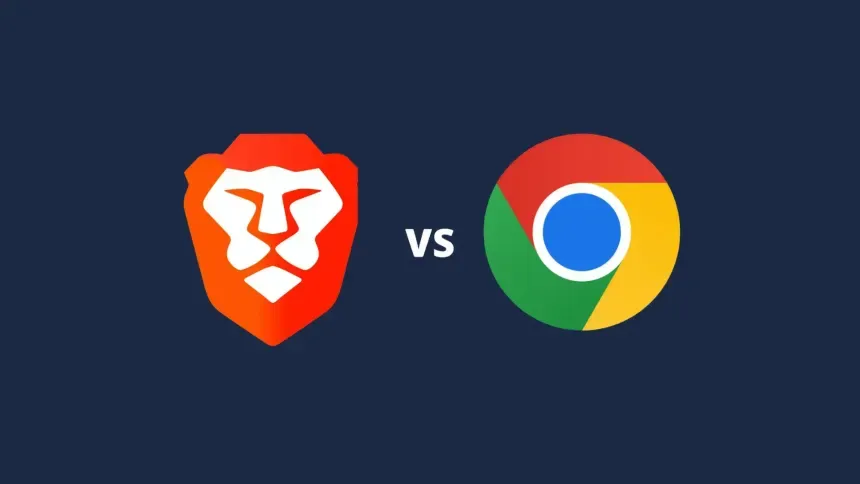Why Brave Browser Reigns Supreme Over Chrome in 2025: Privacy, Performance, and Beyond

In an era where data breaches and online tracking dominate headlines, choosing the right web browser has never been more critical. As we navigate 2025, privacy concerns continue to escalate, with users increasingly searching for the "best browser for privacy 2025" and reliable "Chrome alternatives." Google's Chrome, long the market leader with over 69% global share, faces growing scrutiny over its data collection practices and the controversial Manifest V3 rollout. Enter Brave Browser: a privacy-first powerhouse that's not only faster and more secure but also adapts seamlessly to every user type—from casual surfers to power users. Built on the open-source Chromium engine (the same as Chrome), Brave delivers familiarity without the privacy pitfalls, making it the top choice for those prioritizing "browser privacy" and "ad blocker browser" features. In this deep dive, we'll explore why Brave outshines Chrome across key metrics, backed by recent benchmarks and expert insights.
The Privacy Imperative: Brave's Built-in Defenses vs. Chrome's Data Hunger
Privacy is the cornerstone of modern browsing, with terms like "private browsers" and "secure browser" topping search trends in 2025. Brave excels here by design, blocking third-party ads, trackers, fingerprinting, and even cookie consent pop-ups out of the box—no extensions required. This on-by-default approach includes Global Privacy Control, which signals websites not to sell or share your data, and a premium VPN that encrypts your entire device for comprehensive protection.
In contrast, Chrome's privacy features feel like an afterthought. While it offers basic incognito mode and some tracking protections, Google's ecosystem thrives on user data for targeted advertising. Chrome collects vast amounts of browsing history, IP addresses, and device info, fueling concerns amid rising cyber threats. Independent tests from PrivacyTests.org highlight Chrome's shortcomings, showing it lags in blocking fingerprinting compared to privacy-focused options like Brave. Brave's Shields feature alone prevents invasive tracking, earning it top marks as the "best private browser in 2025" in reviews from PCMag and G2. For users weary of Big Tech surveillance, Brave's no-data-collection policy—verified by security audits—provides peace of mind that Chrome simply can't match.
Performance Showdown: Speed, Efficiency, and Resource Savings
When it comes to raw performance, "fast browser" queries surge as users demand quicker load times and lower resource usage. Brave consistently outperforms Chrome, loading pages 3x to 6x faster by stripping away ads and trackers that bog down sites. Recent 2025 benchmarks, including YouTube speed tests pitting Safari, Chrome, Firefox, and Brave, confirm Brave's edge, especially on ad-heavy pages. It consumes up to 35% less RAM and extends battery life, making it ideal for mobile and desktop alike.
Chrome, while snappy in controlled environments, is notoriously resource-intensive. Its prerendering and heavy integration with Google services lead to higher CPU and memory demands, as noted in Reddit discussions and comparative analyses. In 2025 tests from Efficient App and Text Blaze, Brave's efficiency translates to real-world savings: less data usage on mobile plans and smoother multitasking. If you're tired of Chrome's bloat slowing your workflow, Brave's lean architecture delivers the "fast browser" experience without compromise.
Feature-Rich Innovation: Ad Blocking, AI, and Rewards Ecosystem
Trending searches for "AI browser features" and "crypto browser" reflect the shift toward intelligent, rewarding browsing. Brave integrates Leo AI for on-device answers, content generation, and summaries—processing locally to maintain privacy. Its Brave Search uses an independent index for unbiased, AI-powered results without profiling users. Plus, the built-in crypto wallet and Basic Attention Token (BAT) rewards system lets users earn for viewing privacy-respecting ads, a unique perk absent in Chrome.
Chrome's AI tools, like tab grouping suggestions, tie back to Google accounts, raising "browser privacy" red flags. Brave's native ad blocker is a game-changer, especially post-Manifest V3, where Chrome's changes cripple third-party extensions. As Kaspersky's 2025 analysis warns, Manifest V3 limits rule sets to 30,000, hobbling ad blockers like uBlock Origin on Chrome—while Brave's core blocking remains unaffected. This ensures Brave users enjoy an "ad blocker browser" that's future-proof, with seamless extension support from the Chrome Web Store.
Navigating Manifest V3: Why Chrome's Changes Make Brave Essential
The "Manifest V3 impact on ad blockers 2025" is a hot topic, as Google's extension overhaul phases out Manifest V2 by mid-2025, restricting dynamic blocking via the webRequest API. This shift, aimed at security, inadvertently weakens privacy tools, forcing ad blockers to use less flexible declarativeNetRequest with capped rules—potentially reducing effectiveness by orders of magnitude. Reddit threads and arXiv studies highlight user frustration, with many switching to alternatives.
Brave sidesteps this entirely; its Shields aren't extensions but baked-in, preserving full ad and tracker blocking. For "best browser for privacy 2025" seekers, this means uninterrupted protection, as echoed in HighSpeedOptions and Surfshark reviews ranking Brave above Chrome. As TechRadar notes, Manifest V3 reshapes the ecosystem, pushing users toward privacy-native browsers like Brave.
Tailored for Every User: From Casual to Enterprise
Brave's versatility makes it the "best choice for every kind of user." Casual browsers appreciate the clutter-free experience and data savings on mobile. Privacy enthusiasts rave about Tor integration for anonymous routing. Developers benefit from Chromium compatibility, ensuring extensions and dev tools work flawlessly without Chrome's overhead. Power users love customization like vertical tabs and IPFS support for decentralized web access.
Even enterprises find Brave appealing for its security audits and lack of telemetry, contrasting Chrome's corporate ties. G2's 2025 roundup positions Brave as ideal for ad-averse users, while Visual Capitalist data shows shifting preferences toward privacy leaders. Whether you're a student, professional, or crypto trader, Brave adapts without sacrificing core strengths.
The Verdict: Switch to Brave for a Superior 2025 Browsing Experience
As "trending keywords web browsers 2025" reveal a demand for innovation and security, Brave Browser emerges as the clear winner over Chrome. With unmatched privacy, blazing speeds, AI smarts, and resilience against Manifest V3 pitfalls, it's the all-around champion for "browser privacy 2025" and beyond. Don't let Chrome's dominance dictate your data—download Brave today for a faster, safer web. Your online future will thank you.




